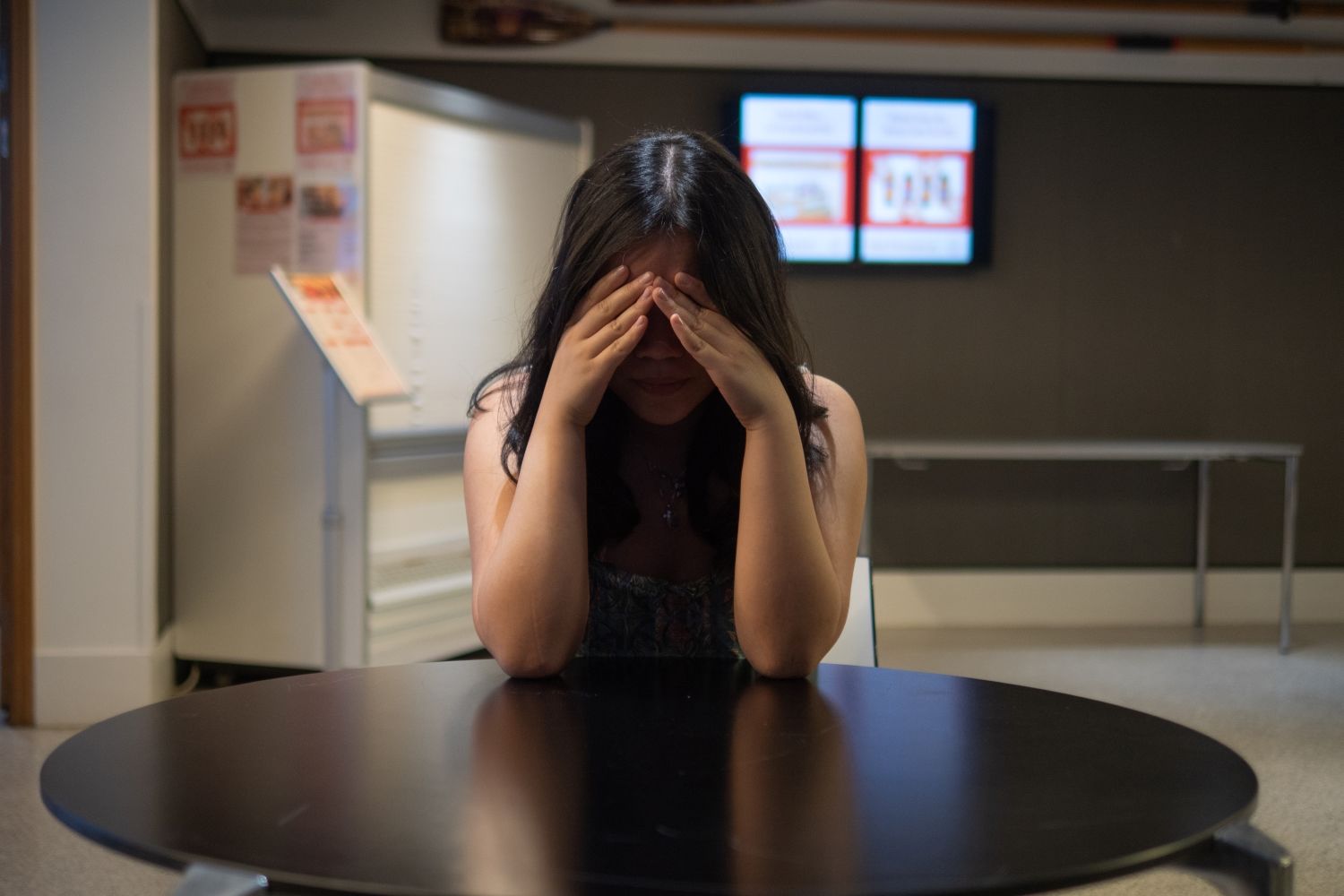Clearly, the possibility of getting a 2:2 is a touchy subject among the wider Cambridge community. When asked, “what would you do if you got a 2:2?” student responses ranged from “trigger warning please” to “there’s no way I could get a 2:2”.
Discussing the demands of college-level rowing, a recent graduate shared the single piece of advice she remembers best from her DoS’ second-year briefing: “whatever you do, please do NOT row”. Struggling to manage their workload and commitments on the Cam, they finished their degree with a disappointing 2:2.
Career anxiety, balancing academics and extra-curricular activities, and a lingering practice of rewarding high performance with cash prizes and high room ballot spots contribute to an environment where students stress endlessly over their exam results.
Back in 2017, considerable discourse was generated by leaked Boston Consulting Group (BCG)’s 2017 applicant pre-screening criteria, which detailed that Oxbridge students obtaining a 2:2 or below were to be immediately disqualified from further consideration by the company. Offering some of the largest entry-level salaries, internationally recognised CV prestige, and a high-intensity, travel-filled lifestyle, places at BCG are highly desired within the Cambridge community. Naturally, it follows that places at BCG and similar well-paying industries (banks, top law and engineering firms) are competitive – BCG boasts an acceptance rate of less than 1%. That’s even lower than any Oxbridge degree you could apply for. With degree classification determining entry to these coveted careers, it’s understandable that there exists considerable fear surrounding obtaining a 2:2 or below.
“the 353 Cambridge respondents in the period who reported a 2:2, were earning slightly more than the 6366 who reported a 1st or 2:1,”
From HESA’s Graduate Outcomes Survey, logging post-Bachelors career outcomes 15 months after graduation between 2017-2022, it is notable that “the 353 Cambridge respondents in the period who reported a 2:2, were earning slightly more than the 6366 who reported a 1st or 2:1,” illustrating that classification hadn’t hurt earnings. However, Cambridge students with 2:2s were twice as likely to be unemployed, although these numbers are “still low compared to many other Universities” – perhaps the Cambridge degree does live up to its name. Higher unemployment amongst those with 2:2s may be chalked up to the fact “some graduate employers in certain sectors do have a policy of not accepting applications from students whose grade is lower than 2.1,” but recent trends have seen many more employers open to applications regardless of grade.
The Careers Centre said that the “2024 Institute of Student Employers recruitment survey showed that a minority of its members require a 2:1 or above,” indicating that historical emphasis on achieving a 2:1 or higher may be softening, with employers placing greater value on skills, experience, and individual potential rather than academic classification. Graduate earnings for those receiving 2:2s are higher than those graduating with Firsts or 2:1s, despite unemployment for the former being higher. The Careers Centre adds that “the longer you’ve been in work, the less important academic grades become to employers in most sectors.”
Students also struggle with balancing academic pressures and personal life, caught between the fear of doing too much and burning out or too little and falling behind. Jerry Conde, a second-year Economist at Hughes Hall, acknowledges that obtaining high degree classifications and exam marks are non-negotiable if applying for study abroad or Master’s programs. He reflects on “whether it’s worth it to get a first class, where the time one spends studying could’ve been time making friends, hanging out, or networking–important career skills for applying to jobs.” He said, “if your goal is to get a job out of uni in an industry you have passion for, the best time spent is doing things that show your passion towards that industry, such as skill-building, networking, and practising to get the process right. Consider: if you were a recruiter, would you hire a student with a 2:1 who has working experience doing the job, or a First class without the experience?”
Catherine Patterson, a first-year HSPSer at Trinity, said, “[balancing personal and academic commitments] is probably the thing I have found most challenging in my first year. I’m aware that there are so many different opportunities, societies, and sports to get involved in, and it was definitely difficult at first trying to balance all of these other priorities with my academic work.” However, she’s come to realise that “I won’t enjoy my course, or get the most out of it, if I end up getting burnt out or don’t allow myself time to do other fun things.” Fears over grades can lead to burnout, yet many students attempt to balance academic work with making the most of their time at university.
“I won’t enjoy my course, or get the most out of it, if I end up getting burnt out or don’t allow myself time to do other fun things.”
Cambridge and its constituent colleges also face reputational pressures that may contribute to a culture of grade-based anxiety. College and university administrators actively dissuade students from scoring poorly on their exams, needing to maintain or improve their external reputation to attract future talent. High-achieving student results preserve prestige and are a key marketing tool for colleges to attract top-tier applicants.
For instance, some students consult the Tompkins Table, ranking of Cambridge colleges based on the percentage of First-class degrees awarded, as a proxy for academic prestige when deciding where to apply. University and college infrastructure is partly built around boosting students’ academic performance; Trinity College used to place First-receiving students within a special “scholar’s ballot,” granting them first choice in their accommodation. While the ballot has been abolished in Trinity, other colleges like Catz, Fitz and Corpus continue to reserve their 20 best rooms for Scholars (those who receive Firsts) and Intermediate Exhibitioners (those who receive high 2:1s).
Furthermore, certain subjects impose academic restrictions based on degree classification. Alara Clayton, a first-year Spanish and Russian MMLer, worried about getting a 2:2, as it would bar her from taking her first-choice additional language paper in her second year. In the Natural Sciences Tripos, students must achieve at least a 2:1 in the relevant Part IB papers to take certain Part II subjects. The university does not take a neutral stance towards academic performance, but actively incentivises students to achieve top classifications on their end-of-year exams.
A former Cambridge Porter and business owner advised students, “to do your best in all exams, put the effort in to achieve a good grade, but don’t think a 2.2 is anything less than a degree.” He adds that “a 2:2 is a pass in anyone’s language; in business, a Cambridge degree is highly desirable, and as an employer, it is the degree we look for, not the grade!” While some anxiety is understandable – after all, these years do hold a bearing on our futures – it’s worth questioning who benefits when students internalise success as something narrowly defined by classifications and grades.
Personally, I’ve found that the memories I’ve made outside academic contexts – finding the cheapest Ryanair trips, post-Revs debriefs, weekend breaks in London – have taught me just as much, if not more, than any exam mark. These are personal experiences that don’t explicitly show up in a Tripos score, but are the ones crucial to shaping the kind of person I want to become. And, I argue – isn’t that also what university is for?


